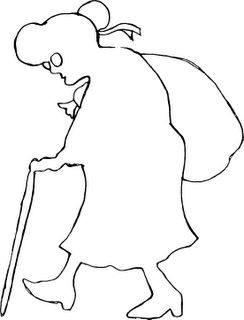…we sometimes talk about the public spaces belonging to men and the private ones to women in the ancient world. And, of course, public is much more important than private! Rose-Gaier quotes this comment by the Jewish philosopher Philo of Alexandria (citing Yonge 611): “There are two kinds of states, the greater and the smaller. And the larger ones are called really cities; but the smaller ones are called houses. And the superintendence and management of these is allotted to the two sexes separately; the men having the government of the greater, which government is called a polity; and the women that of the smaller, which is called oeconomy.” (Special Laws 3.170) That puts men in charge of “politics” and running the government and women in charge of “economics” and running the household. But earliest Christianity was far more involved with the household than with the government. Whether it liked it or not, therefore, women were extremely important in its organizational basis in house-based communities and house-based churches. It was a question of authority and power. At later stages, as Christianity moved more and more into the public and governmental sphere, men had actively to retake such control from women. Women, as Luke 10:38–42 put it, should passively listen like Mary rather than actively administer like Martha.Crossan, The Birth of Christianity [HarperSanFrancisco paperback, p. 372] (First, the last sentence—an utterly provocative take on Mary’s and Martha’s roles, different from any I’ve ever heard—makes sense in the context Crossan has carefully provided in the book, drawing from historical, anthropological, literary, etc. disciplines.) I can’t help but wonder if the Church’s descent from near-absolute power has lessened its appeal for men who might otherwise “join up.” The sacrificial message of the Kingdom of God, as embodied in Jesus, has little or nothing to do with power, especially in our highly political world.
Sunday, August 28, 2005
So what’s wrong with a feminized Christianity?
Dash reports on a speaker she heard, who noted that “for about a century now religion has been becoming more and more feminized, that is, more oriented toward women,” along with raising the question of what it would take to get more males (young and otherwise) involved in church.
I lay that alongside something from John Dominic Crossan:
Saturday, August 06, 2005
Dialogues on democracy and terror
“Two weeks after the London bombings, openDemocracy and Q-News convened a meeting at London’s Chatham House to debate the origins and consequences of the attacks and let Muslims and non-Muslims thrash out the issues.” View article at openDemocracy—free thinking for the world. I especially like the tag line “Nobody pulls our strings”—I hope that’s true. (Via Ray at Minor Wisdom and Faraz Rabbani at Seeker’s Digest.)
Subscribe to:
Posts (Atom)
